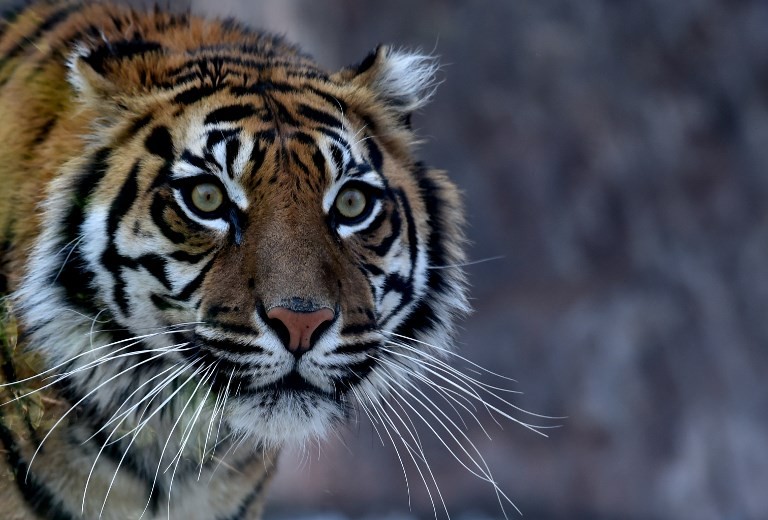Warming may spell extinction for iconic wildlife
Change Size
 A Sumatran tiger called Tila is pictured in its area at the Bioparco of Rome on March 31, 2016. (AFP/Tiziana Fabi)
A Sumatran tiger called Tila is pictured in its area at the Bioparco of Rome on March 31, 2016. (AFP/Tiziana Fabi)
G
lobal warming could place 25 to 50 percent of species in the Amazon, Madagascar and other biodiverse areas at risk of localised extinction within decades, a report said yesterday.
The lower projection is based on a mercury rise of 2 degrees Celcius over pre-Industrial Revolution levels - the warming ceiling the world's nations agreed on in 2015. The highest is for out-of-control warming of 4.5 deg C.
"Global biodiversity will suffer terribly over the next century unless we do everything we can," said conservation group WWF, which commissioned the analysis published in science journal Climatic Change.
"We must keep average global temperatures down to the absolute minimum."
The report focused on 33 so-called "Priority Places" which host some of the world's richest and most unusual terrestrial species, including iconic, endangered or endemic plants and animals.
Read also: Global warming will expose millions more to floods
They include southern Chile, the eastern Himalayas, South Africa's unique Fynbos eco-region, Borneo, Sumatra, the Namibian desert, West Africa, south-west Australia, coastal East Africa, and southern Africa's Miombo woodlands.
The team looked at the impact of climate change on nearly 80,000 terrestrial plant, mammal, bird, amphibian and reptile species.
At warming of 4.5 deg C, based on a "business-as-usual" scenario of no emissions cuts, the Amazon could risk the local extinction of 69 per cent of its plant species.
The Miombo Woodlands risks losing 90 percent of its amphibians, 86 percent of birds, and 80 percent of mammals, said the report.
Limiting warming to 2 degrees Celcius would enable many species to continue inhabiting the areas they currently occupy, according to the report.
This article appeared on The Straits Times newspaper website, which is a member of Asia News Network and a media partner of The Jakarta Post









